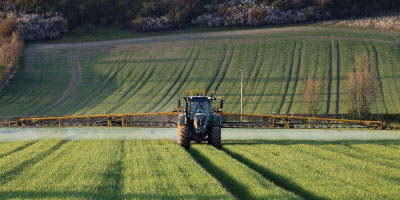Fera Science Ltd. announces its involvement in a three-year research project with Purina to explore the potential of seaweed as a bio-stimulant in regenerative agriculture.
Fera Science Ltd (Fera), a leading UK-based science organisation, is pleased to have been appointed as technical coordinator for Purina's three-year research project exploring how seaweed bio-stimulants can be used in regenerative agriculture.
In many regions of the world, food production relies on synthetic fertilisers, overuse of which can negatively impact soil health, biodiversity, water, and air, as well as the climate. This project will investigate the effects of seaweed-based bio-stimulants on crop growth, soil health, plant performance and nutritional value. Fera Science will lead the Purina-sponsored study, which brings together experts in seaweed bio-stimulants, plant health and soil science including Wageningen University & Research (WUR), Plant Science group and the Kelp Forest Foundation, with Agricarbon UK and NatureMetrics.
Fera will provide expertise in the design and execution of field trials, data analysis, and the development of practical recommendations for farmers and evaluating whether seaweed bio-stimulants can help farmers to reduce synthetic fertiliser inputs, while maintaining yield.
In addition to coordinating the field trials, Fera Science is also responsible for testing the nutritional content of crops, as well as conducting contaminant testing for soil and crops.
Dr. Aoife Dillon, Principal Scientist (Crop Protection) at Fera Science, commented on the project, saying: " We are excited to be working with Purina on this research project. Seaweed bio-stimulants can potentially improve crop nutrient use efficiency, stimulate soil microbiome, and improve the resilience of plants to extreme weather events (abiotic stress). As such, they can be a valuable tool for farmers seeking to improve soil health and crop productivity, while also reducing their environmental impact. Our role as technical coordinator will be to ensure that the project is designed and executed to the highest standards, and that the results are robust and reliable."
The project is supporting Purina's ongoing commitment to source 50% of its key ingredients from regenerative agriculture by 2030, as part of Nestlé’s net zero pledge. By exploring the potential of seaweed as a bio-stimulant, Purina hopes to help farmers reduce their environmental impact, while also promoting the health and well-being of animals and humans alike.
Sheri Smithey, Head of Product and Technology Development for Purina said: “We must explore innovative solutions if we are to make progress against our climate goals. We are proud to be working with partners in researching the potential of seaweed-based bio-stimulants to help farmers and our supply chains adopt more regenerative agricultural practices.”
Juli Plassmeyer, Vice President Global Marketing and Sustainability at Nestlé Purina Petcare, said: “Purina’s strong commitment to sustainability encompasses the transition to regenerative agricultural practises for our ingredient sourcing. We must explore novel solutions like these to help accelerate the transition.”




